
-
 Canada measles cases pass 4,500, highest count in Americas
Canada measles cases pass 4,500, highest count in Americas
-
'Underdog' Jefferson-Wooden shrugs off Tokyo worlds pressure

-
 England's Jones relishing 'special occasion' at Women's Rugby World Cup after tragic year
England's Jones relishing 'special occasion' at Women's Rugby World Cup after tragic year
-
Alcaraz, Djokovic on US Open collision course

-
 US singer signs on for Russia's answer to Eurovision
US singer signs on for Russia's answer to Eurovision
-
Hundred-plus detained after fans 'lynched' during South America cup tie

-
 Trump hails 'total victory' as US court quashes $464 mn civil penalty
Trump hails 'total victory' as US court quashes $464 mn civil penalty
-
Stocks waver ahead of Fed speech but EU tariff deal lifts Europe

-
 Slot says Liverpool will only sign right player at right price amid Isak row
Slot says Liverpool will only sign right player at right price amid Isak row
-
Walmart expects better sales, earnings as shoppers squeezed by tariffs

-
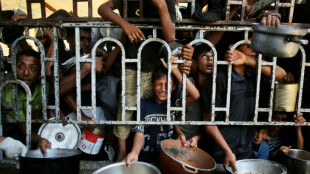 Malnourished Gaza children facing death without aid, says UN
Malnourished Gaza children facing death without aid, says UN
-
Autopsy rules out 'trauma' in Frenchman livestream death

-
 Liverpool's Frimpong out for several weeks with hamstring injury
Liverpool's Frimpong out for several weeks with hamstring injury
-
EU gets 15% US tariff for cars, but fails to get wine reprieve
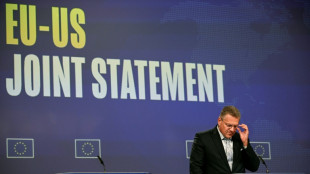
-
 Leverkusen rebuild continues with Bade and Echeverri signings
Leverkusen rebuild continues with Bade and Echeverri signings
-
Ghana singer Shatta Wale held in US fraud probe over Lamborghini purchase

-
 Wales skipper Callender passed fit for Women's Rugby World Cup opener against Scotland
Wales skipper Callender passed fit for Women's Rugby World Cup opener against Scotland
-
Only goal is to win, says ever-competitive veteran Fraser-Pryce

-
 Maresca adamant Fofana 'very happy' at Chelsea
Maresca adamant Fofana 'very happy' at Chelsea
-
Record EU wildfires burnt more than 1 mn hectares in 2025: AFP analysis
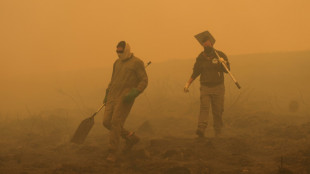
-
 Hurricane Erin brings coastal flooding to N. Carolina, Virginia
Hurricane Erin brings coastal flooding to N. Carolina, Virginia
-
Stocks slide as investors await key Fed speech

-
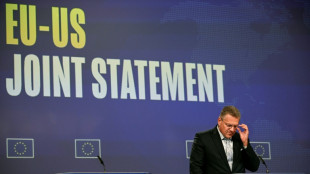 EU gets 15% US tariff for cars, fails to secure wine reprieve
EU gets 15% US tariff for cars, fails to secure wine reprieve
-
Russian fuel prices surge after Ukraine hits refineries
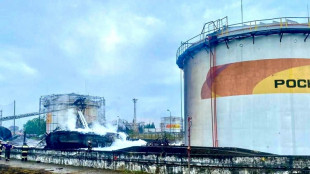
-
 Maguire feels it will be 'silly' to leave Man Utd now
Maguire feels it will be 'silly' to leave Man Utd now
-
Ukrainian suspect arrested in Italy over Nord Stream blasts
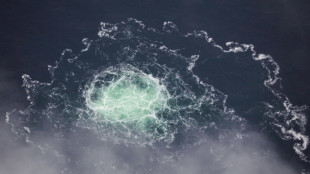
-
 England include ex-skipper Knight in Women's World Cup squad as Cross misses out
England include ex-skipper Knight in Women's World Cup squad as Cross misses out
-
Walmart lifts outlook for sales, earnings despite tariffs

-
 UK sees record asylum claims as row brews over housing
UK sees record asylum claims as row brews over housing
-
Swiss international Okafor move to Leeds heralds new EPL record

-
 Microsoft re-joins handheld gaming fight against Nintendo's Switch
Microsoft re-joins handheld gaming fight against Nintendo's Switch
-
McReight to captain Wallabies against Springboks

-
 Taiwanese boxer Lin agrees to gender test for world championships
Taiwanese boxer Lin agrees to gender test for world championships
-
Stocks slip as investors await key Fed speech

-
 Hong Kong mogul Jimmy Lai's 'punditry' not criminal: lawyer
Hong Kong mogul Jimmy Lai's 'punditry' not criminal: lawyer
-
Bournemouth sign 'proven winner' Adli from Leverkusen

-
 Israel pounds Gaza City as military takes first steps in offensive
Israel pounds Gaza City as military takes first steps in offensive
-
First security guarantees, then Putin summit, Zelensky says
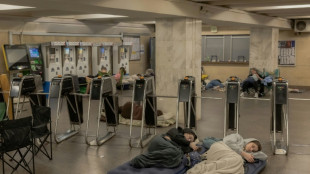
-
 Suspended Thai PM testifies in court case seeking her ouster
Suspended Thai PM testifies in court case seeking her ouster
-
Shilton congratulates Brazilian goalkeeper Fabio on breaking record

-
 Markets mixed as investors await key Fed speech
Markets mixed as investors await key Fed speech
-
Israel pounds Gaza City after offensive gets green light

-
 Fraser-Pryce seeks Brussels boost ahead of Tokyo worlds
Fraser-Pryce seeks Brussels boost ahead of Tokyo worlds
-
Asian markets mixed as investors await key speech

-
 Ten hurt, 90 arrested as match abandoned following fan violence in Argentina
Ten hurt, 90 arrested as match abandoned following fan violence in Argentina
-
Indian heritage restorers piece together capital's past

-
 Australian Rules player suspended for homophobic slur
Australian Rules player suspended for homophobic slur
-
Online behaviour under scrutiny as Russia hunts 'extremists'

-
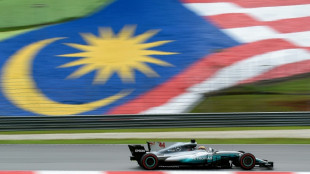 Malaysia rules out return of F1 over costs
Malaysia rules out return of F1 over costs
-
German firm gives 'second life' to used EV batteries


Spain says 'overvoltage' caused huge April blackout
A major power outage that paralysed the Iberian Peninsula in April was caused by "overvoltage" on the grid that triggered "a chain reaction", according to a government report released Tuesday.
The blackout had "multiple" causes, Ecological Transition Minister Sara Aagesen told reporters, adding the system "lacked sufficient voltage control capacity" that day.
Overvoltage is when there is too much electrical voltage in a network, overloading equipment. It can be caused by surges in networks due to oversupply or lightning strikes, or when protective equipment is insufficient or fails.
When faced with overvoltage on networks protective systems shut down parts of the grid, potentially leading to widespread power outages.
Aagesen singled out the role of the Spanish grid operator REE and certain energy companies she did not name which disconnected their plants "inappropriately... to protect their installations".
She also pointed to "insufficient voltage control capacity" on the system that day, due in part to a programming flaw, stressing that Spain's grid is theoretically robust enough to handle such situations.
Due to these misjudgements "we reached a point of no return with an uncontrollable chain reaction" that could only have been managed if steps had been taken beforehand to absorb the overvoltage problems, she added.
"What we're talking about here is an analysis report, it's not any kind of trial. It set out to determine the causes and to make recommendations," the minister said when asked if the head of the grid operator should resign.
Authorities had scrambled to find answers after the April 28 outage cut internet and telephone connections, halted trains, shut businesses and plunged cities into darkness across Spain and Portugal as well as briefly affecting southwestern France.
Spanish Prime Minister Pedro Sanchez announced the formation of an inquiry commission led by the ecological transition ministry shortly after the blackout, urging residents not to speculate until detailed results were available.
He had warned that the probe's conclusions could take several months, given the complexity of the incident.
The government, which has been mired in a corruption scandal involving a close aide of Sanchez, sped up the timeline in recent days.
The commission of inquiry has met three times since Friday to prepare the publication of the report.
- 'Deficiencies' -
Following the outage, several hypotheses were considered to explain the blackout, including a cyberattack and a grid failure caused by excess renewable energy production.
These theories were again dismissed on Tuesday by Aagesen, who nonetheless acknowledged that "vulnerabilities" and "deficiencies" had been identified in Spain's power grid security systems.
The right-wing opposition has questioned the Socialist-led coalition government's phase-out of nuclear energy and reliance on renewables, saying they made Spain more vulnerable to blackouts.
But the government says there is no evidence to suggest "an excess of renewables or the lack of nuclear power plants" caused the crisis.
Among the report's recommendations is the need for stronger supervision and compliance requirements on operators, increasing the country's overall electrical capacity and boosting Spain's electricity connections with neighbouring countries.
The blackout exposed Spain and Portugal's relative lack of interconnections, with support from France and Morocco playing an important role in restoring power.
The European Investment Bank on Monday announced 1.6 billion euros of funding for a major electricity interconnection between France and Spain, which will almost double power exchange capacity.
Z.AbuSaud--SF-PST
